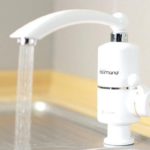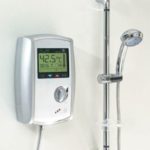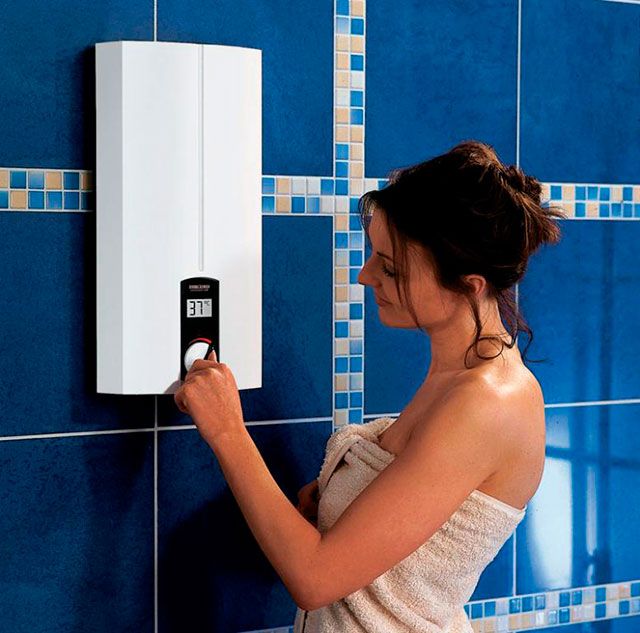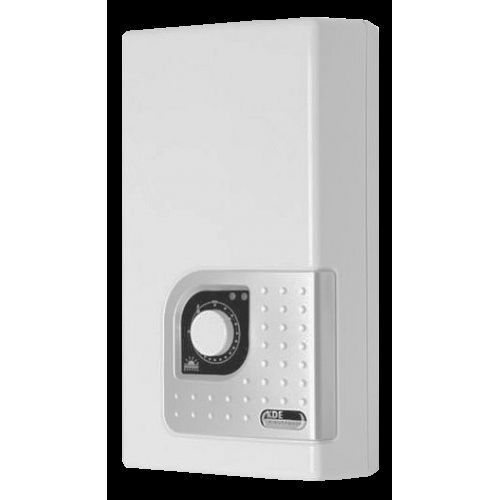Water heater power
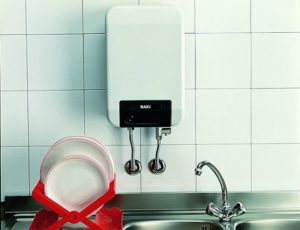 When choosing a water heater for your home, it is important to correctly calculate its power so that there is no shortage or large excess. But in order not to make a mistake in choosing, you need to know what the power of the equipment depends on. You don't have to be a plumbing pro, but it helps to know what you're buying and how it works.
When choosing a water heater for your home, it is important to correctly calculate its power so that there is no shortage or large excess. But in order not to make a mistake in choosing, you need to know what the power of the equipment depends on. You don't have to be a plumbing pro, but it helps to know what you're buying and how it works.
The content of the article
What determines the power of an instantaneous water heater?
At their core, water heaters are very similar to ordinary electric kettles or old boilers. A reservoir filled with water is heated using a heating element. It is he who determines the power consumption of the device. The more powerful the heater, the faster the water temperature rises.
The power also depends on the type of water heater. There are two of them:
- Flow-through. The water in them is heated instantly, passing through a tank with a heating element. Their power is on average higher than that of others.
- Cumulative. In these water heaters, water is stored in a large tank and heated gradually. This technique has less power, but takes up more space.
Average power of instantaneous water heater
The power of flow-through heaters depends on their throughput and productivity.Most often it fluctuates between two and fifteen liters of heated water per minute. Also, the temperature to which the water will be heated will also affect energy consumption.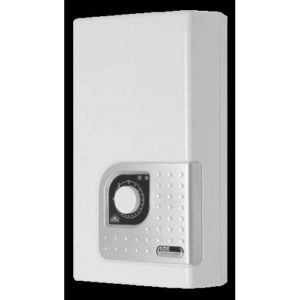
On average, the power of a flow-through heater ranges from 3 to 28 kilowatts. There are both very simple models for the kitchen, heating no more than 3 liters per minute with an energy consumption of 3-4 kilowatts, and real monsters with 19 kilowatts, supplying water to several places in the house at the same time.
However, it is important to understand that such equipment consumes a lot of electricity and is therefore less economical than storage models. But it provides more convenience, because you don’t have to wait for the water to heat up and you don’t have to be afraid to use it all at once. But everywhere there are pitfalls. In some situations, a flow-through device will be more profitable than a storage device.
How to calculate the power of a water heater for your home
To calculate the required heater performance, you first need to know everything about the wiring and electrical system of the house. This will help determine the upper limits of the load, beyond which you should never go. Otherwise, the protection will work and knock out the traffic jams, as they say in everyday life.
IMPORTANT! Don't forget that other appliances in the house will also work together with the heater! This must be taken into account when calculating power. It is unlikely that you will turn off the power to the entire house just to heat the water and take a swim.
Next you will need to define:
- Desired water temperature.
- Fluid flow in liters per minute.
- The average temperature of cold water in the pipes.
Knowing these numbers, it is not difficult to determine the required power using a simple formula: flow rate multiplied by the difference between the desired temperature and the average cold water temperature.Then you just need to divide all this by 14.3 and the desired number is found!
Types and average power of instantaneous water heaters
There are two types of flow heaters - pressure and non-pressure. They differ both in energy consumption and in the type and mechanics of operation.
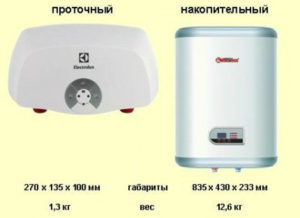 Pressure water heaters cut into the pipe and distribute hot water to the entire living space at once. This is a convenient option for houses with many taps - water will be immediately available from everywhere. The power of such models starts at 4.5 kilowatts and can reach any reasonable limits. This is a multifunctional, convenient, but electrically demanding option.
Pressure water heaters cut into the pipe and distribute hot water to the entire living space at once. This is a convenient option for houses with many taps - water will be immediately available from everywhere. The power of such models starts at 4.5 kilowatts and can reach any reasonable limits. This is a multifunctional, convenient, but electrically demanding option.
Non-pressure ones provide water only for one point - for the one in which they are installed. They are almost always equipped with a shower and take up very little space. However, their energy consumption is always low and ranges from 3.5 to 8 kilowatts. Such devices are most often used in dachas or in apartments with a weak network.
Cost-effectiveness of instantaneous water heaters
High-power pressure heaters are certainly inferior to storage heaters in terms of economy, but does this mean that all flow-through devices are so bad in terms of economy? It’s tempting to say “yes,” especially considering the smart temperature control in other models. But actually it is not.
The liquid in flow-through models only heats up when in use, which means no energy is wasted. Also, practice shows that instantaneous water heaters last longer than storage ones. In addition, they themselves are much more compact and cheaper.
Flow heaters will help you save money if you install them:
- In an apartment building.
- At a dacha outside the city.
- In a house where hot water is needed infrequently and in smaller volumes.
For such situations, instantaneous water heaters will be the best choice in terms of convenience and savings.


